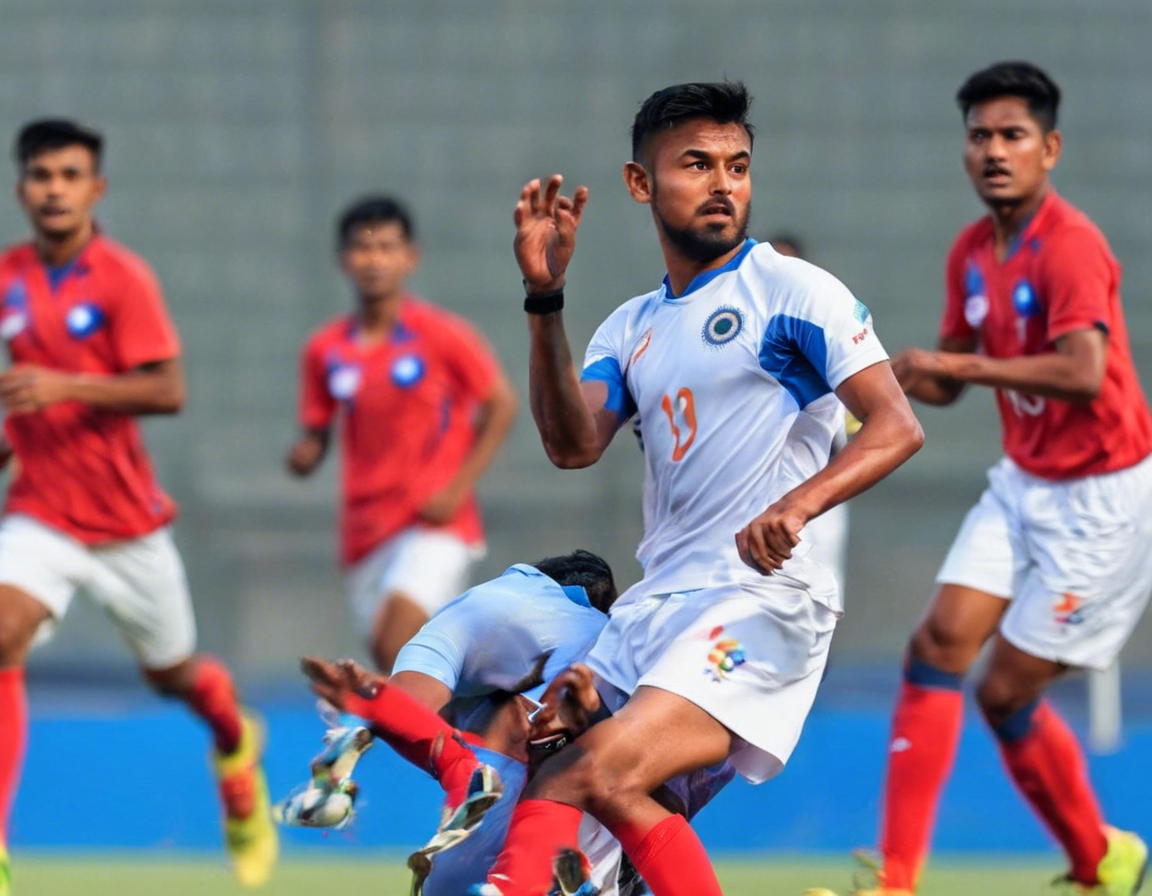
Battle for Supremacy: India vs Nepal at Asian Games
As two neighboring countries in South Asia, India and Nepal have a long history of friendly relations, but when it comes to sports, the competition is fierce. The Asian Games have been a platform to showcase athletic prowess and national pride for both nations. Let’s delve into the battle for supremacy between India and Nepal at the Asian Games.
Historical Performance:
India, with a population of over 1.3 billion, has been a dominant force in the Asian Games. With a rich sporting heritage spanning disciplines like cricket, hockey, badminton, shooting, and wrestling, India has consistently performed well at the Asian Games. The country’s medal tally has been on a steady rise, with athletes like P.V. Sindhu, Neeraj Chopra, and Bajrang Punia bringing home gold medals and making the nation proud.
On the other hand, Nepal, a smaller country with a population of around 30 million, has made significant strides in recent years in various sports. Although Nepal’s overall performance at the Asian Games may not match India’s, the country has produced talented athletes in sports like athletics, taekwondo, and shooting. Athletes like Gaurika Singh and Asian Games 2018 medalist Deepak Bohara have brought glory to Nepal on the Asian stage.
Head-to-Head:
When it comes to a direct comparison of India and Nepal at the Asian Games, India holds a clear advantage in terms of overall performance and medal count. However, Nepal has shown that it is not to be underestimated, with several athletes capable of springing surprises and winning medals against all odds.
In the previous editions of the Asian Games, India has consistently outperformed Nepal in terms of the number of medals won. The Indian contingent, with its larger pool of athletes and resources, has been able to field strong competitors across various disciplines, giving them an edge over Nepal.
Popular Sports:
India:
- Cricket: India’s love for cricket is unmatched, and the sport enjoys a cult following in the country.
- Hockey: India has a rich hockey tradition, having won multiple Olympic gold medals in the past.
- Badminton: With stars like Saina Nehwal and Kidambi Srikanth, badminton has gained immense popularity in India.
- Shooting: Indian shooters have consistently performed well at the international level, including the Asian Games.
- Wrestling: Wrestling has a strong fan base in India, with wrestlers like Sushil Kumar and Bajrang Punia bringing home laurels.
Nepal:
- Athletics: Nepal has produced talented athletes in track and field events like running and long jump.
- Taekwondo: Taekwondo is gaining popularity in Nepal, with young athletes making their mark in the sport.
- Shooting: Nepalese shooters have shown promise in international competitions, including the Asian Games.
Challenges and Opportunities:
While India has a more established sporting infrastructure and support system in place, Nepal faces challenges in terms of funding, facilities, and coaching. However, the passion and talent of Nepalese athletes cannot be underestimated, and with the right support and investment, Nepal has the potential to become a formidable force in Asian sports.
India, on the other hand, faces the challenge of maintaining its dominance and ensuring that the next generation of athletes continues to excel on the international stage. With increasing competition from countries like China, Japan, and South Korea, India must stay ahead of the curve and provide its athletes with the best possible training and resources.
Future Outlook:
As we look towards the future, both India and Nepal have the opportunity to shine on the Asian Games stage. While India will continue to be a powerhouse in sports with its large talent pool and resources, Nepal has the potential to surprise the world with its emerging athletes and dedication to sports.
The rivalry between India and Nepal at the Asian Games is not just about medals and victories; it is a testament to the spirit of sportsmanship, camaraderie, and excellence. As these two nations compete and collaborate on the sporting arena, they inspire millions of fans and athletes to dream big and achieve their goals.
FAQs (Frequently Asked Questions):
1. How many Asian Games has India hosted?
India has hosted the Asian Games twice – in 1951 and 1982.
2. Which sport has the most medals for India at the Asian Games?
Athletics has brought home the most number of medals for India at the Asian Games.
3. Who was the first Nepalese athlete to win a gold medal at the Asian Games?
Deepak Bohara made history by becoming the first Nepalese athlete to win a gold medal at the Asian Games in the men’s taekwondo event.
4. Which Indian athlete has won the most number of gold medals at the Asian Games?
P.V. Sindhu holds the record for the most number of gold medals won by an Indian athlete at the Asian Games.
5. How many disciplines are included in the Asian Games?
The Asian Games feature around 40 sports disciplines, ranging from traditional events like athletics and swimming to martial arts and e-sports.
6. What is the motto of the Asian Games?
The motto of the Asian Games is “Ever Onward,” emphasizing the spirit of competition, unity, and progress.
7. Which Indian city will host the 19th edition of the Asian Games in 2030?
Ahmedabad in the state of Gujarat is set to host the 19th edition of the Asian Games in 2030.
8. Who is known as the “Flying Sikh” in Indian sports history?
Milkha Singh, the legendary Indian sprinter, is known as the “Flying Sikh” for his speed and agility on the track.
9. What is the significance of the Olympic Council of Asia (OCA) in the Asian Games?
The Olympic Council of Asia is responsible for overseeing the Asian Games and ensuring that the spirit of the Olympic movement is upheld during the competition.
10. In which year did Nepal participate in its first Asian Games?
Nepal made its debut at the Asian Games in 1966 in Bangkok, Thailand, marking the beginning of its journey in international sports competitions.

